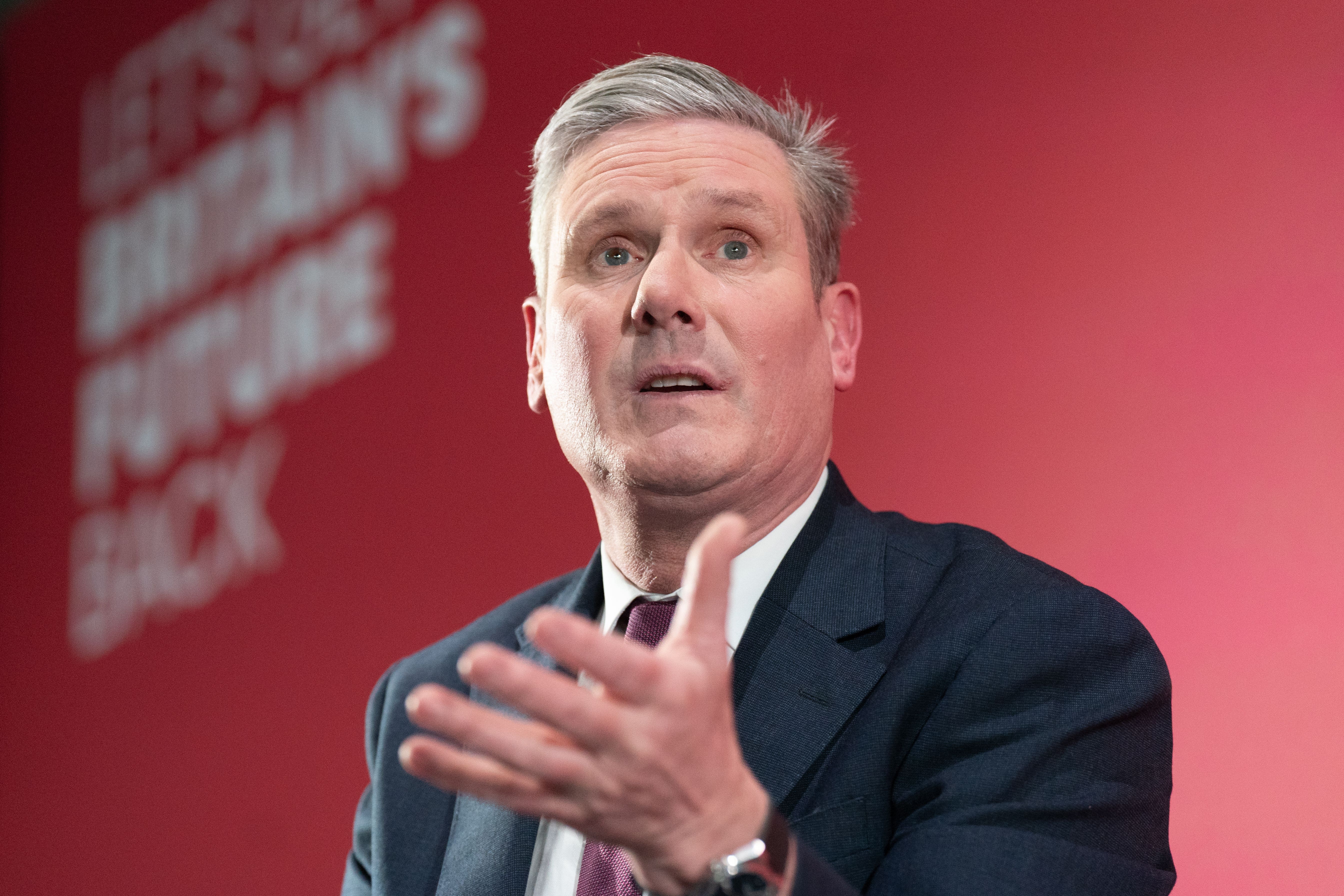Starmer’s green U-turn tells us who really has the power inside Labour
While reversing the decision to drop the £28bn figure may have hurt Starmer’s reputation for responsibility, there are others in the party who will use the move to consolidate their own position, writes Andrew Grice. But they must be careful not to fall into the ‘Blair-Brown trap’ that was New Labour’s downfall


The number 28 is no longer the figure on the minds of Team Starmer after the Labour leader’s slow, messy but inevitable U-turn on the party’s pledge to spend £28bn a year on green investment. I’m told the new number is 370 – a secret internal forecast of how many MPs Labour will have after this year’s general election.
If it happens, it will give Labour an overall majority of 90. No one in Labour will talk about the prediction or even acknowledge its existence. It’s not just that doing so would break Keir Starmer’s “no complacency” rule. It’s because senior Labour figures don’t really believe it. This is a party haunted by defeats in 1992 and 2015 when the opinion polls suggested it was on course for victory, and which believes it is quite capable of snatching defeat from the jaws of victory this year.
That is why the £28bn U-turn was necessary. It was the lesser of two evils because Labour had to defuse the Tories’ latest “tax bombshell”. But it is not without damage, on several fronts. It fuels the dangerous impression that Starmer is a flip-flopper who might do the same in government. Even allies admit privately this is his biggest weakness; it is harder to portray himself as a man of integrity while attacking Rishi Sunak for lacking it, as he did this week over the prime minister’s disastrous unforced error on trans rights.
Labour’s defence of its U-turn was unconvincing. Starmer yesterday and Rachel Reeves today blamed it on the higher government borrowing costs resulting from the Tories’ economic damage. But Liz Truss’s mini-Budget was 18 months ago; it doesn’t explain why Labour took so long to backtrack.
On BBC Radio 4, Reeves insisted she would still be Britain’s “first green chancellor” and that Labour would still deliver its ambitious pledge to decarbonise electricity generation by 2030. Privately, some Labour insiders believe this will become a worthy aspiration that proves too hard to meet on time.
The shadow chancellor insisted the scaled-down green investment plan, now worth £4.7bn a year, remains “Labour’s biggest single policy pledge”. But the U-turn arguably denies Labour a big, bold idea that would have put clear green water between it and the Tories.
Labour’s timing was awful, coming on the day it emerged that global heating exceeded 1.5C for an entire year for the first time.
The retreat undoubtedly damages Labour’s green credentials. The party will lose more votes to the Green Party among the estimated 7 million “green-curious” voters. Labour MPs who have Greens breathing down their neck will be nervous. They include Thangam Debbonaire, the shadow culture secretary, who will contest the new Bristol Central seat after boundary changes halved her majority in Bristol West. I doubt we’ll hear her shout the U-turn’s merits from the rooftops.
What does the decision tell us about who is the real power in Labour land? The big winner is Reeves, who saw off a rearguard action against the change by Ed Miliband, the shadow climate change secretary. The other winners are the two men in charge of Labour’s election campaign – Pat McFadden, a shadow cabinet member, and Morgan McSweeney, who we now know is still Starmer’s most influential aide because Sue Gray, his chief of staff, warned Starmer that retreating under Tory fire would make him look weak.
The decision reminds us that Starmer will do whatever it takes to win the election. So the power lies in his ultra-cautious election team. One unrepentant member of it rejected the label, insisting the group had prevented the policy “blowing up in our face during the election campaign”.
In government, it’s clear the power would reside in Reeves’s Treasury – to the consternation of some shadow ministers. Others who, like Miliband, want to “go big” include Angela Rayner, the deputy leader, and Lisa Nandy, the shadow international development secretary. As I reported here last week, there was a genuine rare difference between Starmer and Reeves over how to get off the £28bn hook.
But they have forged a close partnership and are well aware of the need to avoid an outbreak of “the TBGBs” – the running battle between Tony Blair and Gordon Brown which destabilised New Labour.
For Starmer, there are important lessons to be learned. Insiders say he knew months ago the policy had to be ditched. The irony is that there was never a detailed plan to spend £28bn a year, and yet the label was a huge millstone round Labour’s neck and a big target that even the Tories couldn’t miss.
The policy did not survive the belated, microscopic scrutiny it finally received in recent weeks. So Starmer must act more quickly and decisively when other things go wrong, as they will.
The most important lesson: Labour should not regard the £28bn as a one-off. It must urgently subject all its policies to the same rigorous scrutiny. More problems will be detected; Starmer will need to deal with them ruthlessly.
This episode shows, as one Starmer ally admitted to me, that: “We are far from ready for government.”
Join our commenting forum
Join thought-provoking conversations, follow other Independent readers and see their replies
Comments
Bookmark popover
Removed from bookmarks